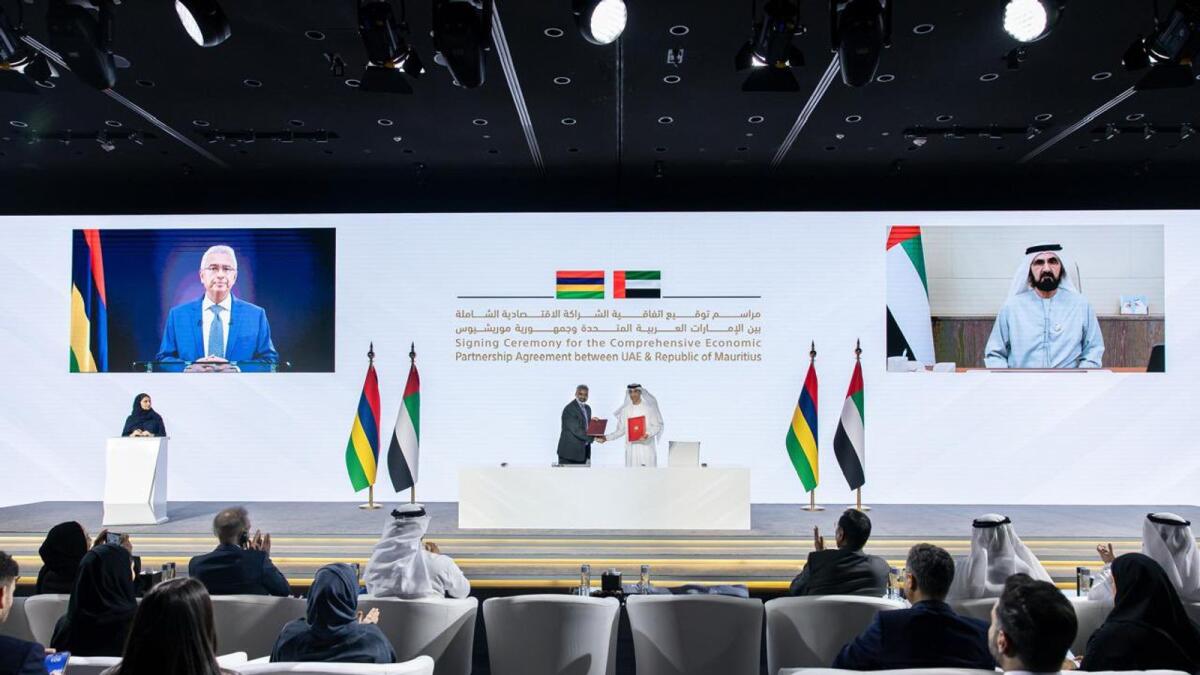The UAE and Mauritius recently signed a Comprehensive Economic Partnership Agreement (CEPA) in a historic move, marking the first such agreement between the UAE and an African country. This agreement aims to reduce or eliminate over 95 percent of tariffs on trading goods and services, fostering economic growth and creating more opportunities for both nations. Sheikh Mohammed bin Rashid Al Maktoum, Vice-President and Prime Minister of the UAE and Ruler of Dubai, emphasized the significance of expanding economic ties with Africa, highlighting the mutual benefits that such partnerships can bring.
During the signing ceremony, Dr Thani bin Ahmed Al Zeyoudi, UAE’s minister of state for foreign trade, and Maneesh Gobin, minister of foreign affairs and regional integration and international trade of Mauritius, hailed the agreement as a milestone that will enhance economic cooperation between the two countries. The UAE has previously signed CEPA agreements with other nations like India, Israel, Indonesia, and Turkey, aiming to remove trade barriers and open up more market opportunities for exporters and investors.
The agreement is expected to boost investments between the UAE and Mauritius, with Al Zeyoudi revealing that $13 billion worth of investments have flowed from the UAE to Mauritius, and $2.2 billion in the opposite direction. By focusing on countries that can mutually benefit each other economically, the UAE hopes to strengthen its trade relations with Mauritius, leveraging the latter’s strong services-based economy for increased collaboration in sectors such as logistics, aviation, maritime, and financial services.
Maneesh Gobin, representing Mauritius, noted that his country has been proactive in signing free trade agreements, establishing itself as a gateway to Africa. The CEPA with the UAE is expected to provide an ideal platform for both countries to explore new trade opportunities and enhance their economic cooperation further. As part of the agreement, barriers in the services sector will be removed, allowing service providers from both nations to tap into new markets and sectors, such as tourism, financial services, and more.
With negotiations ongoing with additional countries in Africa, Asia, and Latin America, the UAE is keen on expanding its network of CEPA agreements to unlock new potential in international trade. Furthermore, the agreement is set to benefit small and medium enterprises (SMEs) by facilitating their access to international markets and streamlining the import-export process, enabling them to scale their operations beyond domestic boundaries. Overall, the CEPA between the UAE and Mauritius signifies a significant step towards fostering economic ties and encouraging collaboration between the two nations for mutual growth and development.









